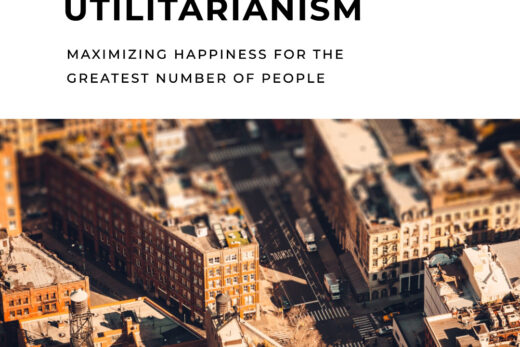Moral relativism is a philosophical concept that is often misunderstood. Yet, it deeply influences how we see different cultures, societies, and behaviors. Let’s demystify this important philosophical concept.
Understanding Moral Relativism
Moral relativism argues that morality isn’t universal but shifts according to individuals or societies. It contends that morality is flexible, impacted by elements like culture, social settings, or personal beliefs. A practice morally acceptable in one culture could be taboo in another, underlining the variability of moral values.
Moral Relativism vs. Moral Absolutism vs. Moral Nihilism
Many people confuse moral relativism with notions such as moral absolutism or moral nihilism. While moral absolutism argues for fixed moral codes applicable universally, moral nihilism rejects the very existence of morality. Moral relativism, on the other hand, acknowledges the existence of morality, but insists that its application varies. It doesn’t suggest ‘anything goes.’ Instead, it posits that societal, cultural, or individual contexts shape moral codes.
Moral Relativism
Main Point: Moral standards are not universal, but are instead determined by cultural, societal, or individual contexts.
Example: Polygamy is a good example of moral relativism. In some societies, like certain polygamous communities in Africa, this practice is morally acceptable. However, in many Western societies, polygamy is considered morally unacceptable.
Notable Proponents: Gilbert Harman, David Wong
Moral Absolutism
Main Point: There are universal moral principles that apply to all individuals, regardless of cultural, societal, or personal context.
Example: Killing is often cited in moral absolutism. Regardless of context or culture, taking another person’s life is viewed as morally wrong in this perspective.
Notable Proponents: Immanuel Kant

Moral Nihilism
Main Point: Moral nihilism rejects the existence of any moral truths or values.
Example: A moral nihilist might argue that concepts such as good, evil, right, or wrong are meaningless and have no inherent value or truth.
Notable Proponents: Friedrich Nietzsche (though Nietzsche’s views on morality are complex and subject to varying interpretations)

Moral Relativism and Tolerance
There’s a fine line between moral relativism and tolerance. When we say that others are entitled to their views, and we have no right to impose our morality on them, it might seem like moral relativism. However, in most cases, it’s an appeal for tolerance, while the speaker remains committed to their particular moral views.
Tolerance is a stance that allows for the existence of differing beliefs, including moral beliefs. It doesn’t necessarily imply agreement with those beliefs. For instance, you might disagree with another society’s views on same-sex marriage but still believe that they have the right to hold those views.
Moral relativism, on the other hand, doesn’t just say that we should tolerate other moral viewpoints. It goes a step further and says that those viewpoints are just as valid as our own because morality is relative to the specific culture, society, or individual.
Using the same-sex marriage example, a moral relativist wouldn’t just say “I disagree with that society’s views on same-sex marriage, but they have the right to hold those views.” Instead, they might say, “That society’s views on same-sex marriage are different from mine, but given their cultural and societal context, their views are as valid as my own.”
Moral Relativism in Practice: Examples
The issue of capital punishment or the death penalty varies widely across the world and serves as a real-life example of moral relativism in practice. In certain countries like China, Saudi Arabia, and Iran, the death penalty is a legal form of punishment for certain crimes. These societies view it as a morally acceptable deterrent and retribution for severe crimes. On the other hand, many Western countries like Canada, Australia, and most of Europe have abolished it, viewing it as a morally reprehensible violation of the right to life.
In this scenario, a moral relativist wouldn’t claim that one society is morally superior to the other. Instead, they would argue that each society’s stance on capital punishment is a reflection of its own unique set of moral norms, shaped by their cultural, historical, and societal contexts.
Another example of moral relativism in practice can be seen in differing attitudes toward euthanasia, or assisted suicide. In countries such as the Netherlands and Belgium, euthanasia is legally and morally accepted as a compassionate method to end unnecessary suffering. Yet, in many other societies, euthanasia is viewed as morally reprehensible and is illegal due to religious or ethical beliefs about the sanctity of life. As a moral relativist would argue, these contrasting views are not about one society being morally superior to the other but are reflections of their unique cultural, historical, and societal contexts.
Moral Relativism and Moral Imperialism
The cultural imperialism during the British colonization of India serves as a stark example of moral imperialism. The British colonizers often tried to force their own moral standards, religious beliefs, and societal norms onto the Indian populace. This is notably seen in their attempts to abolish practices such as sati (a funeral custom where widows self-immolate on their husband’s pyre), and their imposition of Western education and Christian beliefs.
This form of cultural and moral imperialism contradicts the concept of moral relativism, which posits that moral norms are not universally applicable but are shaped by individual, societal, and cultural contexts. A moral relativist might argue that practices like sati, while abhorrent by Western standards, held different meanings within the context of traditional Indian society and thus should not be judged solely based on an external moral code. This could spur challenging discussions on moral relativism’s limits when confronting human rights-violating practices.
Conclusion
The fundamental challenge for moral relativism is not about dissolving all moral values, but about promoting dialogue, understanding, and empathy across diverse ethical landscapes. It encourages us to question, engage, and learn from the multiplicity of moral practices, not to promote indecisiveness or inaction.
Moral relativism does not advocate for blind acceptance, but for informed understanding. In our quest to respect all moral norms, we should not lose sight of our capacity for moral reasoning and our commitment to human dignity and rights. It is not about silencing our moral instincts but about engaging them in a more inclusive, empathetic, and informed way.
Frequently Asked Questions
What is moral relativism and why is it important?
Moral relativism is the idea that moral norms and principles are not universal but are instead relative to different cultural, societal, or individual contexts. It’s importance lies in fostering understanding and respect in our globalized world for diverse moral beliefs.
Can moral relativism lead to moral paralysis?
Here’s a concern that if all moral views are seen as equally valid, it could lead to moral paralysis where we can’t criticize any cultural or societal practices, even if they appear harmful or unjust. However, most moral relativists argue for a more nuanced view. They suggest that while we should respect the fact that moral norms can vary, it doesn’t mean we cannot critique and challenge those norms based on our own moral perspectives.
Is there a universal moral principle that all moral relativists agree on?
While moral relativism posits that moral norms vary, some moral relativists argue there are a few basic moral principles that tend to be universal. For example, principles related to the welfare and fairness tend to be valued across many different cultures and societies. However, how these principles are interpreted and applied can vary widely, reinforcing the concept of moral relativism.
How does moral relativism affect our globalized world?
In our increasingly globalized world, moral relativism can promote understanding and tolerance among diverse cultures and societies by recognizing that moral norms can vary widely. This can help reduce cultural conflicts and promote cooperation and dialogue. However, it also presents challenges, especially when dealing with global issues that require a collective moral stance, such as human rights or climate change.
How does moral relativism impact laws and legal systems?
Legal systems reflect a society’s moral values, evident in the world’s diverse laws. Moral relativism acknowledges this diversity and can help legal scholars understand why certain laws exist in some societies but not in others. However, it also raises challenges in international law, where there’s a need for universal legal principles.
What is the relationship between moral relativism and ethical theories like utilitarianism or deontology?
Moral relativism is not an ethical theory in itself, but rather a viewpoint on the nature of moral values. Ethical theories like utilitarianism or deontology propose specific principles on how to determine what’s morally right or wrong. A moral relativist can subscribe to theories like utilitarianism. However, they would argue that it’s not universally valid, but one of many perspectives.
Video about Moral Relativism
Reference
Harman, G. (1975). Moral relativism defended. The Philosophical Review, 84(1), 3-22.
- This paper, written by Gilbert Harman, one of the notable proponents of moral relativism, offers a comprehensive defense of the theory.
Wong, D. (2006). Natural Moralities: A Defense of Pluralistic Relativism.
- This book by notable moral relativist David Wong provides a robust defense of the concept
Prinz, J. (2007). The Emotional Construction of Morals.
- This book by Jesse Prinz is an important modern source for arguments in favor of moral relativism.




